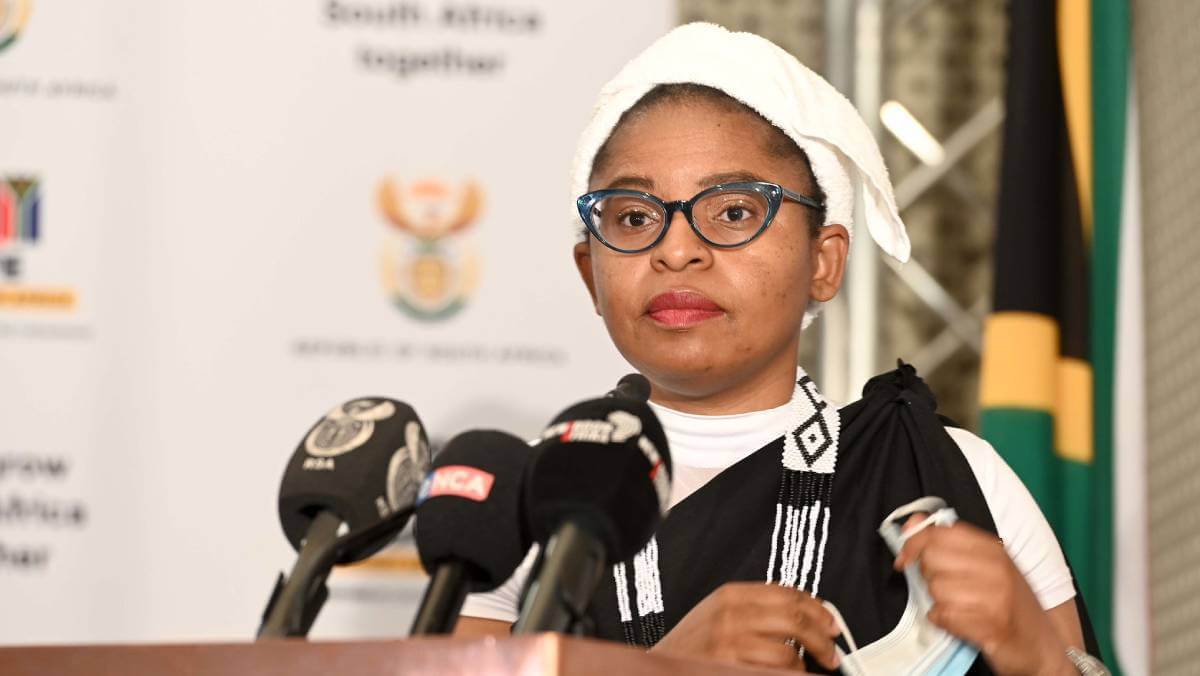SA digital migration on track for March 2022SA digital migration on track for March 2022
South Africa's Communications Minister has committed to completing the country's digital migration by the end of March 2022.

South Africa's Communications and Digital Technologies Minister, Khumbudzo Ntshavheni, has committed to completing the country's digital migration by the end of March 2022, saying her department is firmly on the path to meet the deadline.
In 2006, South Africa committed to the International Telecommunication Union's June 2015 deadline for all countries to switch from analogue to digital terrestrial TV. However, SA missed the deadline and as 2021 comes to a close the nation has only partially migrated to digital TV.
The digital migration is critical for the country as it will free up high-demand spectrum that can be used for mobile broadband services.
Numerous delays have held up the process and the SA government has missed a number of its own deadlines to migrate. During his State of the Nation Address earlier this year, SA president Cyril Ramaphosa committed to March 31, 2022 as the final deadline.
Making progress
Minister Ntshavheni held a media briefing on Wednesday and said that she would personally switch off the final analogue site in the Northern Cape province on Friday November 26, 2021, making it the second province out of nine to be migrated.
The Free State was the first to be fully migrated in October 2021.
"I have committed to the switch-off event in Upington because by switching off analogue in the Northern Cape, we will also be freeing the space to achieve non-interference for the Square Kilometre Array, this is but our small contribution towards the quantum leap technology target for South Africa," she said, mentioning the international radio telescope research project in which South Africa is an active participant.
She said the team was on track to conclude the North West switch off next, followed by Limpopo and Mpumalanga and then the remaining provinces.
The government has committed to assist indigent households with subsidized set-top-boxes to ensure universal migration does not leave anyone behind. She said over 1.2 million low-income households had already registered for set-top-boxes and 572,255 beneficiary households have been migrated already.
The Minister also made a speech this week at the Southern Africa Telecommunication Networks and Applications Conference (SATNAC) saying that her department was "doggedly pursuing digital migration."
"We are fully aware that access to spectrum will be a major game changer in improving access to connectivity, amongst other things. We are not only committing to the release of mobile spectrum but 5G spectrum for production," she added.
South Africa is expecting a spectrum auction to take place in March 2022 but some of the spectrum in the 700MHz and 800MHz bands that is supposed to be on offer is still tied up by analogue TV.
Local mobile operators have been waiting for 15 years for more high-demand radio frequency spectrum to be released by the regulator.
Internet for all
During her speech at SATNAC, Ntshavheni said the SA government is reviewing its plans to ensure that all South Africans have access to connectivity in their homes by 2024.
She said this will require government to re-write the South African draft Data Policy to include a commitment on how much data each SA home should have access to at the most basic price.
This after the European Union committed to 1TB to the home by 2025 – she challenged SA's ICT sector to commit to similar targets.
"The challenge will be what South Africa should commit to, given the development disparities that are not only a result of class differences but the geolocation of the person – the urban/rural divide" she said.
"It's not just about getting the services out there. Access to connectivity has become a basic need. It is as much a basic need as access to water and access to electricity – because it determines access to education, access to health, access to work, which are fundamental for our survival," she added.
Want to know more about digital inclusion in Africa? Check out our dedicated Digital Inclusion content channel here on Connecting Africa.
Minister Ntshavheni said that the digital divide did not only exist in society but in government itself.
"The bulk of government administration and services yet to be digitized, we are confronted by the challenge of how do we leapfrog public service into the future into new ways of working".
She said this will require reskilling public servants and working closely with local and global stakeholders in the sector.
Related posts:
*Top image is of Minister Khumbudzo Ntshavheni briefing the media on the outcomes of a Cabinet meeting on May 26, 2021 (Source: GovernmentZA on Flickr via CC 2.0).
— Paula Gilbert, Editor, Connecting Africa



.jpg?width=700&auto=webp&quality=80&disable=upscale)
.jpg?width=700&auto=webp&quality=80&disable=upscale)
_(1).jpg?width=700&auto=webp&quality=80&disable=upscale)
.jpg?width=700&auto=webp&quality=80&disable=upscale)
.jpg?width=700&auto=webp&quality=80&disable=upscale)
_(1).jpg?width=700&auto=webp&quality=80&disable=upscale)
.jpg?width=700&auto=webp&quality=80&disable=upscale)
.jpg?width=800&auto=webp&quality=80&disable=upscale)

.jpg?width=700&auto=webp&quality=80&disable=upscale)